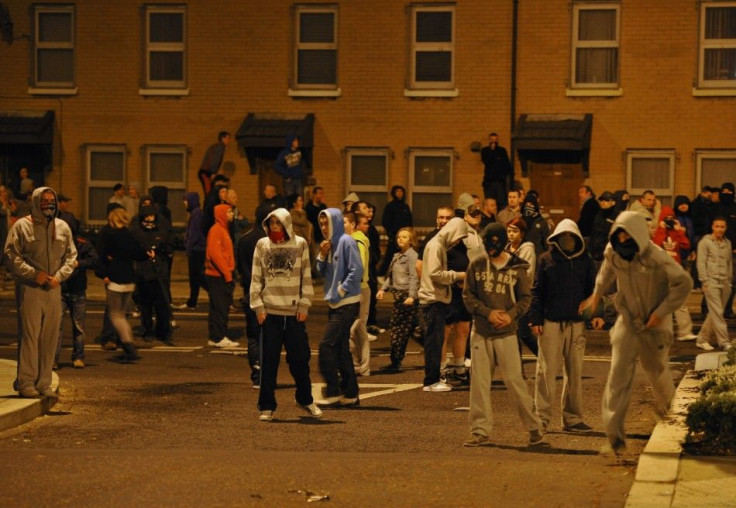Riots Erupt in Northen Ireland Over Protestant Marches

Violence erupted in Northern Ireland's provincial capital Belfast on Tuesday, when the police had to shoot plastic bullets and water cannons at Catholic youths. The shooting took place after a riot broke out when a Protestant parade passed their estate.
Around 200 people threw bottles, slates and petrol bombs in the mainly Catholic Ardoyne area of Belfast after police moved in to prevent them confronting the passing Orange Order parade. Two cars were set on fire and dozens of rounds of plastic bullets were fired. Police said a number of officers were injured, Reuters reported.
The Orange Parade marks the victory of King William of Orange over Roman Catholic King James at the Battle of the Boyne in 1690, which led to Protestant supremacy in Ireland. Many Catholics find this provocative.
While most of the 500 parades passed peacefully across Ireland, rioting was reported in Londonderry, Newry and Armagh as well as the Markets area in central Belfast.
According to Reuters report, a small Orange Order parade passed the Ardoyne estate, where a few residents held a silent protest. However, hundreds of others were pinned down by police and officials in riot gear, a move that many residents believed was heavy handed.
It's the same thing every year. It's aggravation, said Jim, a 47-year old health worker watching the parade. We're surrounded up here. It's no wonder the kids have so much hatred.
Northern Ireland has been a bone of contention between the Protestant loyalists, who want it to remain a part of United Kingdom and Irish nationalists, mainly Catholics who want the province to be part of a United Ireland.
The two clashing groups almost tore the Northern Ireland province apart during a thirty-year struggle known as the Troubles.
Violence diminished after the signing of the 1998 peace deal between the loyalists and the nationalists. However, police believe that the threat from dissident groups opposed to the peace deal has been the highest since the signing of the deal.
Two dozen police officers were injured in nationalist rioting on Monday night as Protestant youths lit hundreds of bonfires, many draped in Irish flags, to mark the July 12 holiday. Police said they had also come under attack on Tuesday evening in the mainly Catholic Markets area of Belfast, with rioters throwing bricks and fireworks and setting a car on fire. A car was hijacked and set alight in Armagh.
Catholic and Protestant politicians have appealed to the public to maintain peace and calm and not protest in the parades.
We must not allow the progress that has been made to be thwarted by those who want to drag us back to the past, Northern Ireland's First Minister Peter Robinson said.
© Copyright IBTimes 2025. All rights reserved.






















